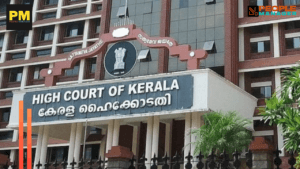Person Voluntarily Retired with Benefits Cannot Be Treated As ‘Workman’ U/S. 2(S) Of Industrial Disputes Act: Karnataka HC
As per the Bench's ruling, a worker who has chosen voluntary retirement and accepted all benefits under the VRS Scheme is no longer able to argue or refute that their voluntary retirement was achieved through coercion or undue influence.

An Employee Who Has Voluntarily Retired From Service By Accepting Benefits Cannot Be Treated As ‘Workman’ U/S. 2(S) Of Industrial Disputes Act, Karnataka HC in the case of Triveni Turbine Limited v. Government of Karnataka & Ors.
The Karnataka High Court held that workers are not entitled to be classified as employees under Section 2(s) of the Industrial Disputes Act, 1947, if they have voluntarily retired from service and accepted the advantages of the voluntary retirement package.
In a writ case brought by a firm contesting the validity and accuracy of the state government’s order of reference, the court made this ruling.
A Single Bench of Justice K.S. Hemalekha observed, “Settled legal preposition is that jural relationship between the employer and employee comes to an end in case of retirement, voluntary retirement, resignation… In the instant case, employees who have voluntarily retired from service and have accepted the benefits under the voluntary retirement package announced by the management cannot be treated as workers as envisaged under Section 2(s) of the ID Act.”
As per the Bench’s ruling, a worker who has chosen voluntary retirement and accepted all benefits under the VRS Scheme is no longer able to argue or refute that their voluntary retirement was achieved through coercion or undue influence.
While HCGP Spoorthi V. represented the respondents, advocate C.K. Subrahmanya represented the petitioner.
Brief of the case:
In 2020, the petitioner company introduced the Voluntary Retirement Scheme (VRS), and 46 employees freely chose to participate in the program and receive rewards. Five workers voluntarily submitted their resignations and designated a candidate, someone of their choosing, in the event of an unfortunate incident. Their bids for voluntary retirement or resignation were approved by management, which also terminated their employment.
By filing the required application, 51 employees claimed gratuity under the Payment of Gratuity Act, 1972. After receiving a no-due certificate, 46 of them resigned under VRS, while the remaining 5 were released upon accepting their resignation and paying for all of their remaining benefits. The aforementioned 46 employees signed the memorandum of settlement, the business paid, and all statutory benefits were cleared.
The question that arose for consideration before the court was – “Whether the order of reference made under Section 10 (1) of the Industrial Disputes Act, 1947 (‘ID Act’ for short) would raise a question of industrial dispute in the event the employee has voluntarily retired from service and has accepted the benefits of voluntary retirement, can be treated as a workman as defined under Section 2(s) of the ID Act?”
Given the case’s facts and circumstances, the High Court observed, “The employee’s receipt of retirement benefits marks the end of the employer-employee relationship.” In this instance, the reference’s invalidity can be demonstrated without waiting for the presentation of evidence; referring the disagreement to the Industrial Tribunal would be pointless. After an employee submits an application and the employer approves it, a contract is formed, and both parties are subject to the terms and conditions of the voluntary retirement plan.
The Court further stated that the reference made by the relevant government would not be warranted and that the employees, having received the full benefits, cannot request a revaluation of the amount of benefits under the voluntary retirement plan. It also stated that before filing any more claims, it is mandatory to deposit the whole sum received, including the service benefits, in accordance with the established legal position.
The workers claim benefits as employees of the corporation, but they are unwilling to give up their retirement benefits and the breakup of the master-servant relationship. This is because they believe that “the person who seeks equity must do equity.” It just cannot be allowed. It concluded that the respondent’s initiation of the proceedings and adjudication was not justified because the respondent had neglected to submit the settlement money.
The Court also observed that in the case, neither the dispute is in existence nor is the dispute apprehended since employees have admitted that they have opted for voluntary retirement from service and the benefits received under the scheme, and this being the position, the government ought to have arrived at a subjective satisfaction as to whether a prime-face dispute is in existence or is apprehended from the material on record.
“It is evidently clear that the appropriate government has mechanically referred the matter without discharging its obligation as required under law, and a serious error of law has been committed by the appropriate authority, which is apparent on the face of the record,” it determined.
Accordingly, the High Court allowed the writ petition and quashed the order of reference made by the government.
Read more HR news like this on PropleManager.co.in
Value our content… contribute towards our growth. Even a small contribution per month would be of great help to us. Since our establishment, we have been serving the industry through daily news and updates.
Our content is free for all, and we plan to keep it that way
Support the People Manager. Pay Here
- Financial Crisis Cannot Compel an Employee to Work, Resignation Rejection Amount to Bonded Labour: Kerala High Court. - February 17, 2026
- Pernod Ricard India introduces Cheers VRorld, an industry-first VR-powered onboarding experience in the Alco-Bev sector - February 11, 2026
- Jio-bp Appoints Sareeta Bhatikar as Chief Human Resources Officer to Steer Next Phase of Growth - February 11, 2026








